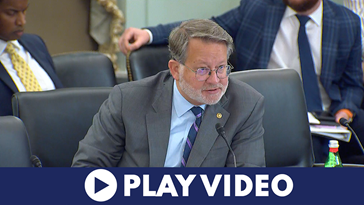Peters Joins Bipartisan Working Group to Expand Access to High-Speed Internet
WASHINGTON, DC – U.S. Senator Gary Peters (MI) joined a bipartisan Senate working group to evaluate and strengthen reforms to the Universal Service Fund, which supports access to high-speed internet. The working group will consider the current state of the universal service requirements at the Federal Communications Commission (FCC) and consider possible reforms to ensure the FCC is able to achieve its mission to promote and preserve universal service across the United States. During a recent Senate Commerce Subcommittee Hearing on the state of the Universal Service Fund, Peters discussed the importance of continued investments in high-speed internet in rural communities.
“The Universal Service Fund helps support high-speed internet in rural and underserved areas across our country, including in Michigan,” said Senator Peters, a member of the Senate Commerce, Science, and Transportation Committee. “This bipartisan working group will help us ensure this program is strong for years to come and find solutions to expand access to reliable high-speed internet in our state and across the country.”
To watch video of Senator Peters asking questions about access to high-speed internet, click here or the image below.

The working group is led by Senators Ben Ray Luján (D-NM) and John Thune (R-SD), Chairman and Ranking Member, respectively, of the Senate Subcommittee on Communications, Media, and Broadband, and other members include Senators Amy Klobuchar (D-MN), Shelley Moore Capito (R-WV), and Jerry Moran (R-KS).
Peters has long advocated for increased access and resources for expanding high-speed internet across Michigan. He helped enact the bipartisan infrastructure law, which will provide Michigan with over $1 billion to help provide high-speed internet coverage across the state, including to hundreds of thousands of Michiganders who lacked access at the time of the bill’s signing. As of May 2023, an estimated 637,000 households across the state were receiving affordable internet through the law’s Affordable Connectivity Program. In 2017, he urged the FCC to prioritize new high-speed internet deployment in rural and underserved areas through the Universal Service Fund.
###